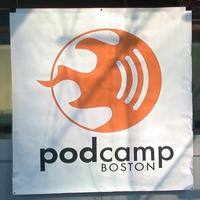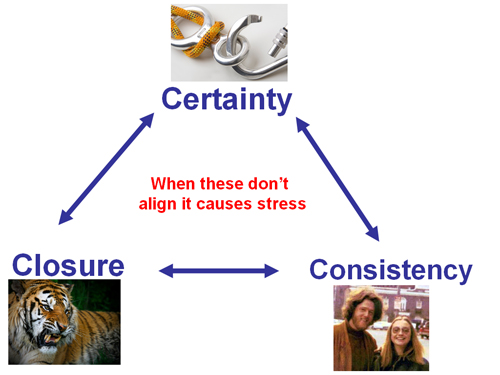Dave Wieneke Discusses Lay Epistemology at Podcamp Boston
 About twenty years ago. I was fortunate to study the social psychology theory of Lay Epistemology with a student of its developer, Arie Kruglanski. Thirty or so social media experts joined me for a discussion at Podcamp, taking place at Harvard Medical School, to introduce this remarkably durable theory as one way to assess and plan influential marketing communications. Thanks to everyone who participated. Here is the Powerpoint part of my presentation, which is mostly illustrations and notes used during our discussion.
About twenty years ago. I was fortunate to study the social psychology theory of Lay Epistemology with a student of its developer, Arie Kruglanski. Thirty or so social media experts joined me for a discussion at Podcamp, taking place at Harvard Medical School, to introduce this remarkably durable theory as one way to assess and plan influential marketing communications. Thanks to everyone who participated. Here is the Powerpoint part of my presentation, which is mostly illustrations and notes used during our discussion.
What is Lay Epistemology?
In short, it’s a theory about how people form and change their own beliefs.
Its premise recognizes that people never have total access to all relevant information. However, they make constructs of belief anyway, and regard them as definite when they accept their self-made concepts as valid.
The illustration below shows three general factors that drive the acceptance or rethinking of belief. We discussed these, as well as some more general terms for them. Participants in the talk generated lists of how these examples play out in their work, and we discussed other useful rubrics for planning influential communications.
It was nice to venture beyond the data of our own results, and discuss why some things work, and what can make changing beliefs more possible, or more difficult. Thanks to everyone who participated, and who helped create this kind of gathering.


 The future of digital experiences will be built by strategists who grasp the full array of emerging business, social, and technical models. Specialties in user experience, branding, application design, and data science are laying the foundation for richer user experiences and business models breakthrough products and revenue based marketing.
The future of digital experiences will be built by strategists who grasp the full array of emerging business, social, and technical models. Specialties in user experience, branding, application design, and data science are laying the foundation for richer user experiences and business models breakthrough products and revenue based marketing.
1 Response to "Dave Wieneke Discusses Lay Epistemology at Podcamp Boston"
October 20, 2014
However, when I applied it to my skin after a few minutes it began to settle and out came a
wonderful blend of vanilla and other scents that didn’t at all resemble my first impression. Launched by
the design house of Dolce & Gabbana in 1994, DOLCE & GABBANA is classified as
a refined, spicy, lavender, amber fragrance. The scent of a men’s
cologne only works well with their natural scent.